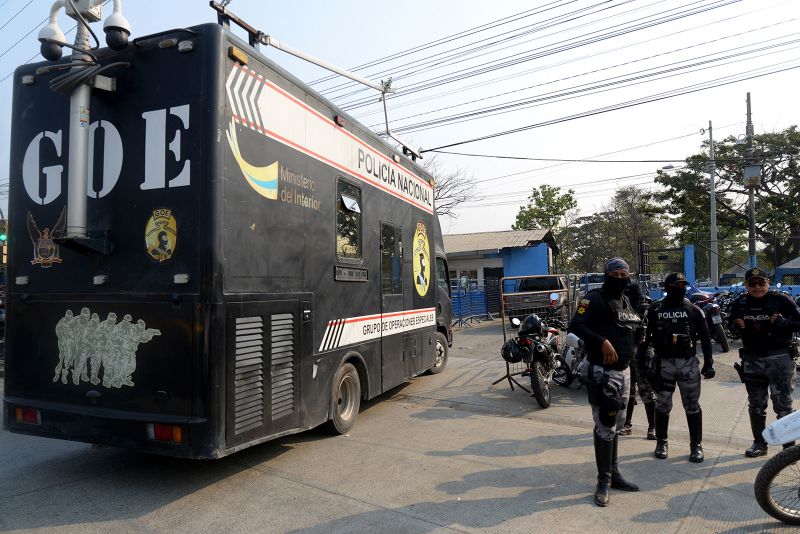
At Least 15 Lives Lost in Deadly Confrontation at Infamous Ecuadorian Prison
The recent deadly clash between inmates at the notorious Ecuadorean prison, Turi, has once again brought to light the dire situation of the country’s prison system. With at least 15 reported dead and many others injured, the incident sheds a harsh spotlight on the issues plaguing the correctional facilities in Ecuador.
Overcrowding is one of the major challenges facing Ecuador’s prison system, with the country’s prisons operating well beyond their capacity. This overcrowding not only leads to increased tensions among inmates but also exacerbates the lack of resources and inadequate living conditions within the prisons. The lack of sufficient staff to monitor and manage the inmates further compounds the problem, making it easier for violence to erupt uncontrollably.
Moreover, the prevalence of gangs and organized crime within the prisons is a significant contributor to the violence and unrest that frequently erupts. Gangs often control various aspects of prison life, including drug trafficking, extortion, and territorial disputes, creating a volatile environment where conflicts can escalate quickly into deadly confrontations.
The issue of corruption within the prison system also cannot be overlooked. Reports of collusion between prison officials and criminal organizations have surfaced, highlighting the challenges of maintaining order and security within the prisons. This corruption not only undermines efforts to reform the system but also allows criminal elements to operate with impunity behind bars.
In light of the recent incident at Turi prison, urgent measures are needed to address the underlying issues that have contributed to the violence and chaos within Ecuador’s prisons. Improving prison conditions, addressing overcrowding, increasing staff training, and cracking down on corruption are essential steps that must be taken to prevent similar tragedies from occurring in the future.
Furthermore, efforts should be made to provide inmates with access to education, vocational training, and rehabilitation programs to help them reintegrate into society upon their release. By focusing on rehabilitation and reintegration, Ecuador can work towards reducing recidivism rates and creating a more effective and humane criminal justice system.
In conclusion, the deadly clash at Turi prison serves as a stark reminder of the urgent need for reform within Ecuador’s prison system. Addressing issues such as overcrowding, gang violence, corruption, and lack of resources is essential to improving the safety and security of both inmates and prison staff. By implementing comprehensive reforms and investing in rehabilitation programs, Ecuador can work towards creating a more just and humane correctional system for its citizens.
